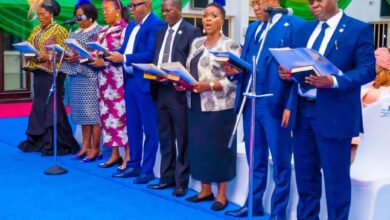Insecurity Crisis Deepens In Anambra: A Call For Urgent Action

In a tragic reminder of the worsening insecurity in Anambra State, three lives were lost last week when members of a Supersport crew were ambushed by gunmen in Iseke, a border town between Ihiala Local Government Area and Orlu, Imo State. The victims—a cameraman, a police officer, and a driver—were killed as their vehicle was caught in the crossfire while en route to Uyo, Akwa Ibom State, for coverage of the AFCON qualifying match between Nigeria and Libya. Fortunately, six other members of the crew were rescued by security forces, though one remains missing.
The attack on the Supersport team occurred on October 8, 2024, just days before Nigeria’s October 11 AFCON qualifier, which saw the Super Eagles emerge victorious. However, this victory on the field was overshadowed by the escalating violence in Anambra. Four days prior to the ambush, police foiled a kidnapping attempt involving a Syrian expatriate in Ogbunka, Orumba South LGA, though two policemen were shot during the operation. The assailants behind these incidents remain at large, heightening concerns about the deteriorating security landscape.
These violent occurrences are far from isolated. Anambra State has been grappling with a series of violent attacks targeting law enforcement and civilians alike. In recent months, gunmen have attacked multiple police stations, killing officers and causing widespread fear. Just last year, nine members of a United Nations team were brutally killed in Ogbaru Local Government Area while on an official visit.
Even urban areas like Awka, the state capital, have not been spared. Rival cult groups regularly clash in bloody violence that often results in gruesome deaths in broad daylight. Although some of these incidents are reported, many go unnoticed by the media, contributing to the growing sense of insecurity.
Critics argue that Governor Charles Soludo’s administration has been overwhelmed by the crisis. Despite receiving nearly one billion Naira monthly as a security vote, Soludo has struggled to curb the violence. His recent claim that vigilante groups had been infiltrated by criminals has drawn criticism, as it shifts blame away from the state’s security apparatus. Under Nigeria’s constitution, it is the government’s responsibility to protect the lives and property of its citizens, a duty that vigilante groups are meant to supplement—not replace.
Observers are urging Soludo to follow the example of neighboring governors, such as Peter Mba of Enugu State and Alex Otti of Abia State. Both have prioritized security, equipping law enforcement with advanced technology, including drones and surveillance cameras, and empowering them to confront the threat of violence. Their efforts have begun to attract investors to their states, demonstrating the critical link between security and economic growth.
As insecurity worsens in Anambra, there are also concerns about governance. Soludo has delayed local government elections, citing security concerns, and is instead focused on consolidating financial control over the 21 local government areas (LGAs) in the state. This move, critics argue, undermines local autonomy and diverts attention from the urgent need to address violence at the grassroots level.
Former Senate President Ahmed Lawan has noted that local government autonomy is essential for addressing national security challenges. Research has shown that when local governments function effectively, they can empower rural populations, reduce rural-urban migration, and create economic opportunities for youth, thereby reducing crime.
For Anambra to regain stability, Soludo must prioritize security and allow local councils the autonomy necessary to govern effectively. His administration has a responsibility to ensure that the state’s citizens can live and work without fear of violence.



